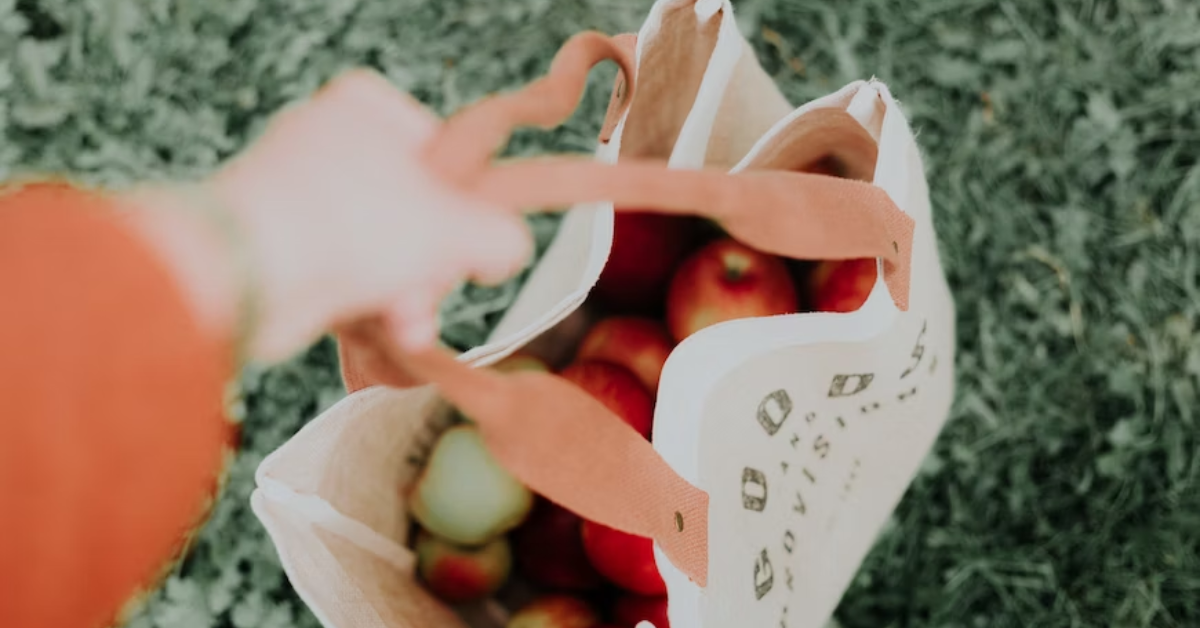
How to Incorporate Sustainability Into Your Everyday Style

*Collaborative Post
In recent years, climate change has become an ever-pressing concern. Glaciers are melting, weather patterns are shifting, and natural habitats are rapidly declining. Amidst all these environmental changes, an unexpected industry contributes significantly to the problem: the fashion world, specifically, fast fashion. Fast fashion refers to cheaply produced and priced garments that mimic the latest fashion trends. While these pieces may seem affordable and stylish in the short term, they have an overwhelming environmental and ethical cost. But fear not fashionistas! By making conscious choices, you can incorporate sustainability into your everyday style without compromising your look.
Baggy jeans, for instance, are having a resurgence in popularity. Not only are they a nod to the nostalgic ’90s aesthetic, but they can also be a sustainable choice for your wardrobe. The key is to opt for versatile pieces that can be worn for multiple seasons and styles. By investing in a pair of baggy jeans that fit you perfectly and are made of quality materials, you can create myriad outfits, making the most out of a single purchase. When it comes to sustainability, the philosophy is simple: “Buy less, choose wisely.”
Choosing such key pieces has multiple benefits:
Durability and Timelessness
High-quality clothing items, like a sturdy pair of baggy jeans, can last you for years. Opt for neutral or classic colours that won’t go out of style anytime soon. These can be paired with seasonal items, ensuring you get ample use out of them.
Reduced Carbon Footprint
Each time you opt for a durable piece over a fast fashion item, you reduce the number of garments that need to be produced, transported, and, eventually, disposed of. This can significantly cut down your carbon footprint.
Cost-effective
Although sustainable pieces may seem more expensive up front, their longevity ensures that you spend less in the long run. Instead of buying multiple pairs of jeans over a few years, a single pair of well-chosen baggy jeans can serve you for much longer.
Versatility
One of the main principles of sustainable fashion is versatility and wardrobe staples. The more ways you can style an item, the fewer items you need. Baggy jeans, for example, can be dressed up with a chic blouse and heels, or dressed down with a t-shirt and sneakers. Their versatile nature means you can create numerous outfits without needing an expansive wardrobe.
To truly integrate sustainability into your style, consider these additional tips:
Second-hand Shopping
Thrift shops and vintage stores are treasure troves for unique and sustainable finds. Purchasing secondhand means you’re recycling existing pieces and reducing the demand for new production.
Support Sustainable Brands
While shopping secondhand is great, there’s also a need to support new sustainable brands that are making efforts to change the industry from within. Brands that use organic materials, ethical labour practices, and sustainable production methods deserve our patronage. It is especially important to play closer attention to the staple pisces you’re purchasing for your wardrobe. Whether it’s a pair of jeans, a simple white T, a bralet or socks, you should always prioritize the sustainability of the brand, since it will also have a direct impact on your health. For instance, 100% organic cotton underwear by Q for Quinn or cotton socks by Greenfibres are a great investment for your wardrobe, since they are both gentle on the skin and don’t contain any harsh chemicals that can cause discomfort. Choosing sustainable materials for your undergarments or shirts can also minimize irritation if you have highly sensitive skin.
Care for Your Clothes
The way you care for your clothing can also extend its life. Washing in cold water, air drying, and avoiding harsh chemicals can ensure your clothes last longer and remain in good condition.
Educate Yourself
Read up on materials and production methods. For instance, organic cotton, bamboo, and Tencel are more sustainable than conventional cotton or synthetic fabrics. Knowing what your clothes are made of can help you make better choices.
In conclusion, sustainability doesn’t mean you have to sacrifice style. In fact, it often leads to a more curated, personal, and thoughtful wardrobe. Embrace key pieces like baggy jeans, and remember that every time you choose quality over quantity, you’re making a positive impact on the environment. So, next time you’re out shopping, consider the long-term benefits of your purchase, not just the immediate style statement. Your planet, and your wardrobe, will thank you.
*This is a collaborative post. For further information please refer to my disclosure page.
If you enjoyed this post you can follow more of our life, opinions and antics over on Facebook, Twitter, YouTube and Instagram. Plus feel free to come and join in with my parenting group ‘From One Parent to Another’ on Facebook.
If you’d like to contact me you can either leave me a comment or drop me a line via my contact me page.
For other topics similar to this one check out these suggestions below…




